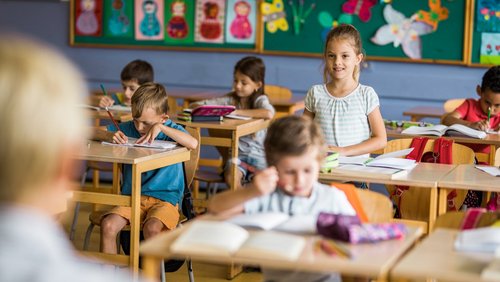Over the past decades, empirical research has produced many insights on how education policies may affect student performance and equality of educational opportunity, in Germany and beyond. Despite an increasingly rich evidence base, there has been limited headway on many political reforms.
The ifo Education Survey 2014–2021: A New Dataset on Public Preferences for Education Policy in Germany

Over the past decades, empirical research has produced many insights on how education policies may affect student performance and equality of educational opportunity, in Germany and beyond. Despite an increasingly rich evidence base, there has been limited headway on many political reforms.
One possible reason for the discrepancy between insight and action could lie in the interactions between political considerations and opinions of the public – the “political economy” of education policy (see West and Woessmann 2021). To investigate the electorate’s opinions on education policy, the ifo Institute has set up an annual representative survey to elicit the German public’s opinion on education issues – the ifo Education Survey (ifo Bildungsbarometer).
The ifo Education Survey has been surveying the education policy preferences of large representative samples of the German voting-age population annually since 2014. The survey covers a broad range of generic education topics in all relevant educational stages – from early childhood education, schools, and vocational education to university education and life-long learning. In addition, most survey waves included a number of questions on current topics at the time of the survey, such as education policies to integrate refugees in the 2016 survey wave or education policies during the Covid-19 pandemic in the 2020 wave.
By implementing numerous randomized information experiments in the surveys, the ifo Education Survey facilitates studying how correcting people’s biased beliefs about underlying facts affects their support for education policies. Beyond information experiments, the survey includes experiments on the effects of framing and question design on answering behavior. In addition to representative cross-sectional samples of the German population, specific survey waves of the ifo Education Survey also cover special interest groups such as parents, teachers, and adolescents. The findings of the ifo Education Survey have been presented in annual descriptive reports, studied in several academic publications, and taken up in the public debate on education policy in Germany.[1]
Data from the ifo Education Survey waves 2014 to 2021 are published for scientific use. The purpose of this paper is to introduce the survey to interested researchers and provide a guide on how to access the data. Section 2 describes the content and implementation of the survey. Section 3 provides information on data access. Section 4 summarizes the existing research based on the ifo Education Survey and outlines the potential for future research.
The ifo Education Survey 2014–2021: A New Dataset on Public Preferences for Education Policy in Germany


Unterrichtstunden an Grundschulen im Ländervergleich
In der Grundschulzeit erfolgen zentrale Weichenstellungen für die späteren Bildungswege junger Menschen in Deutschland.
IW
„Der Lehrermangel in Deutschland wird sich bis Anfang der 2030er Jahre immer weiter verschärfen“
IW-Bildungsexperte Wido Geis-Thöne erklärt im Interview mit dem BR Podcast von Bayern 2, warum der Lehrermangel in den nächsten Jahren immer größer werden wird. Hintergrund ist, dass es seit den 2010er Jahren immer mehr Geburten gibt und jetzt immer mehr ...
IW